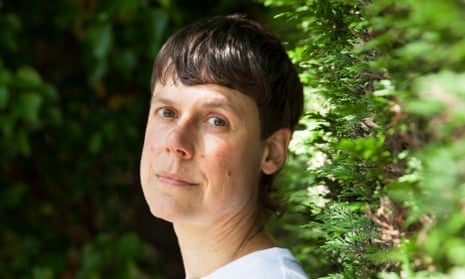Isabel Waidner, 47, is the author of three novels, including We Are Made of Diamond Stuff Sterling Karat Gold , a non-binary migrant cleaner is arrested after being attacked by bullfighters on a London street; the story also involves UFOs, the history of Iraq and the death of the footballer Justin Fashanu. Waidner, who hosts the ICA’s online literary chatshow This Isn’t a Dream first novel , Gaudy Bauble , someone called Belá writes “awkwardgarde fiction”. Is that how you would describe your work? Gaudy Bauble was more rooted in traditional avant-garde strategies like punning, giving agency to the materiality of language. I always wanted to do something different with experimental fiction, something contemporary and queer/trans, but I also wanted to combine that with an engaging narrative. What I’ve created now is less “awkward”!Sterling , the protagonist of your new novel, works as a cleaner while co-producing a crowdfunded performance art project… When Sterling is unjustly put on trial after being assaulted, the judge offers to drop the case if he can appear on Sterling’s show… Why do you play with real-life figures in your work? Franz Beckenbauer as a character let me bring in some of the history of racism and homophobia via the context of football. But there’s autobiographical stuff going on too; I merged figures from my life with the real Beckenbauer. My dad played football, so I wanted to use a 70s footballer roughly his age, and my “Franz Beckenbauer” is gay and has died of Aids, which is what happened to my uncle. One of the things I like to do in my fiction is to produce tension and energy from working across different registers without smoothing over the differences between them.How easy was it for you to get published? Gaudy Bauble through Dostoyevsky Wannabe , two working-class people operating a print-on-demand press [in Manchester] with zero capital. We submitted it to the Republic of Consciousness prize, and then We Are Made of Diamond Stuff was eligible for the Goldsmiths prize because I was British by then. Getting shortlisted meant that without any traditional infrastructure we started to reach a quite wide readership. But people shouldn’t be surprised if my work looks so different; instead, people should ask, why are other books so similar? Because it’s really simple: when different writers publish work, you get different forms of literature. What am I trying to say with my work is that “different” doesn’t need to be scary or boring or hard; it can be fun.You were born and grew up in Germany; do you see yourself as a German writer? What have you been reading lately? called Cipher Press is publishing interesting stuff, like Large Animals L ote , winner of this year’s Republic of Consciousness prize ] is obviously part of that.Which authors inspired you to write? Kafka : as a teenager I read everything. Later, I discovered the American queer tradition of “new narrative” writing, people like Dodie Bellamy , Robert Glück and Kevin Killian , whose poetry sequence Action Kylie is about Kylie Minogue. This is the stuff that has most influenced me, but it has never really crossed over into the UK; because they’re queer and working class, they’re not getting the credit they deserve.Sterling Karat Gold is published by Peninsula Press on 24 June (£12.99). To support the Guardian and Observer order your copy at guardianbookshop.com . Delivery charges may apply
